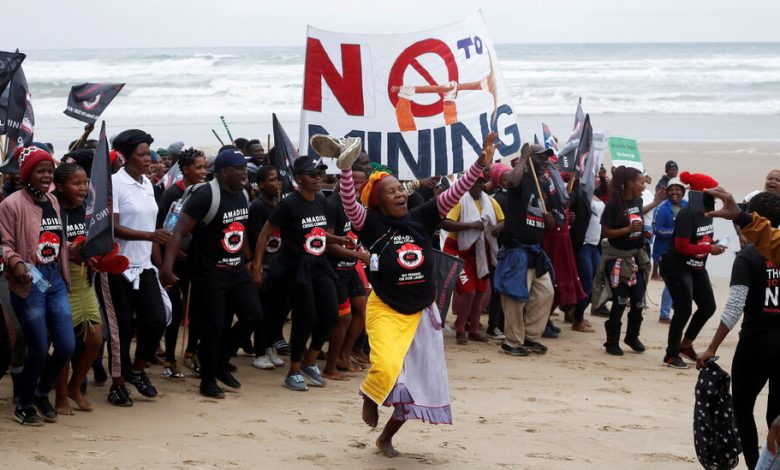Environmental Prize Highlights Work to Keep Fossil Fuels at Bay

New coal mines continue to open each year, and oil and gas companies are still exploring new parts of the world. But increasingly, people — especially Indigenous communities — are saying no to new fossil fuel developments on their land and using courts and legislatures to deliver the message.
In India, protests by Adivasi communities persuaded officials to cancel the auction of land for coal mines in the biodiverse forests of Chhattisgarh State. In South Africa, the Mpondo people stopped the Shell Global company from carrying out seismic surveys for oil and gas off the Wild Coast. In Australia, First Nations people blocked development of a coal mine in Queensland.
These legal victories occurred within the past three years. On Monday, leaders of these and other grass-roots environmental movements, spanning six countries, won the Goldman Environmental Prize.
“One of the things we’ve seen in recent years is that environmental law, protection of natural resources, has become intertwined with human rights law and the law of Indigenous people,” said Michael Sutton, an environmental lawyer and the executive director of the Goldman Environmental Foundation.
Forcing these types of cases is the fact that as climate concerns have risen so has exploration for fossil fuels in many places, said Carla García Zendejas, a lawyer and director of the People, Land & Resources program at the Center for International Environmental Law.
“With all the decisions that are being made for climate change, trying to address the climate crisis,” Ms. García Zendejas said, “it seems that the oil companies are just trying to get every drop of oil out of the ground as soon as possible, before permits and concessions are halted or revoked or stopped.”
